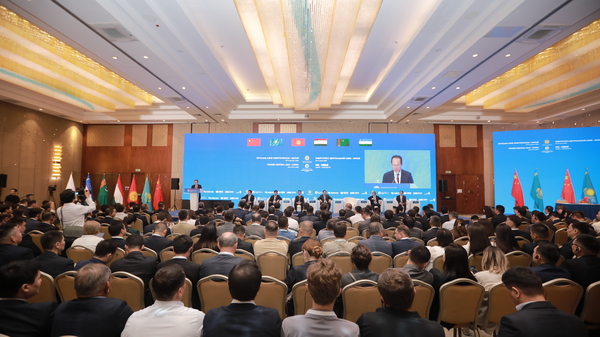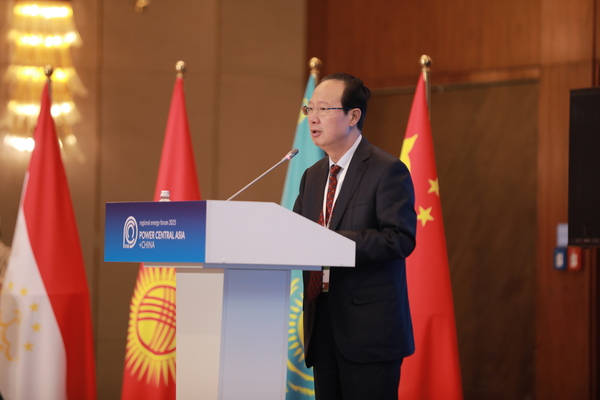
Ding Yanzhang delivers a keynote address at the opening ceremony of the 2025 Power Central Asia-China Forum.

Ding Yanzhang delivers a keynote address at the opening ceremony of the 2025 Power Central Asia-China Forum.
Ding Yanzhang, president of POWERCHINA, delivered a keynote address at the opening ceremony of the 2025 Power Central Asia-China Forum, held on June 16 in Astana, Kazakhstan, as part of the Second China-Central Asia Summit.
Ding emphasized the pivotal role of energy collaboration between China and Central Asian countries. As a global leader in clean energy and water resources development, POWERCHINA has strengthened its practical cooperation in the energy sector with Central Asian countries.
Since entering the Central Asian market in 1999, POWERCHINA has been dedicated to green development, undertaking major hydropower, wind power, and photovoltaic projects in countries such as Kazakhstan, Uzbekistan, and Tajikistan. These efforts have provided safe, green, and efficient energy solutions while fostering strong relationships with host countries.
Ding highlighted Kazakhstan's rich resources and significant achievements in renewable energy development. He expressed POWERCHINA's commitment to collaborating with all stakeholders in advancing the energy transition and innovation across Kazakhstan and Central Asia.
He outlined four strategic focus areas: engaging in Central Asia's energy planning, standard-setting, and consulting, helping develop tailored renewable energy solutions, advancing smart energy and ecological protection, and promoting localization to support local supply and industrial chains.
Ding also signed a strategic cooperation agreement with the Ministry of Energy of Kazakhstan.
The forum focused on enhancing technical and investment cooperation in energy transition between Kazakhstan, China, and other Central Asian countries. Discussions covered key areas such as investment and green finance, water and energy security, energy transition and digital innovation, industrialization, and localization of production.